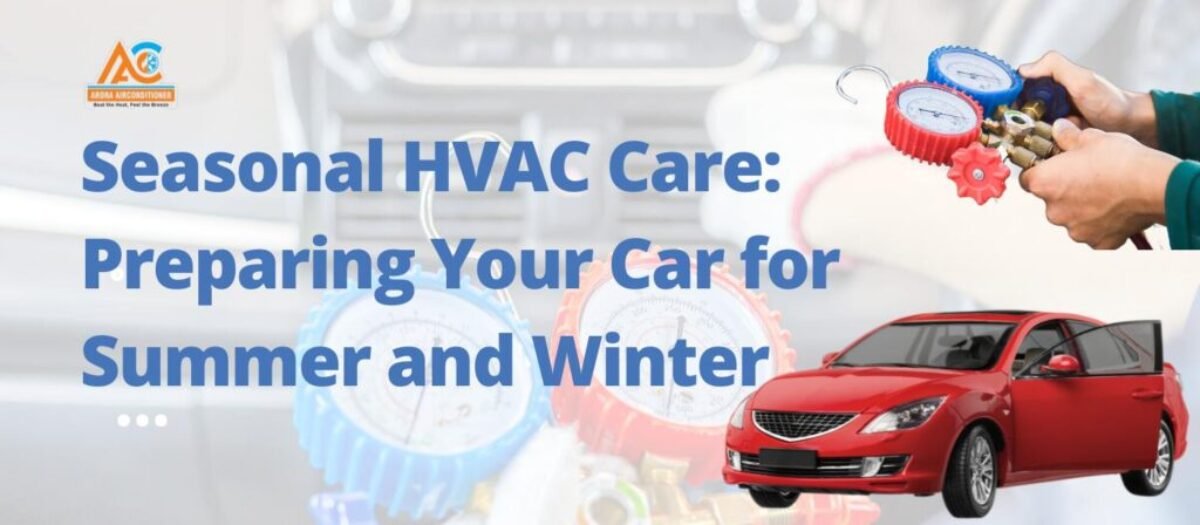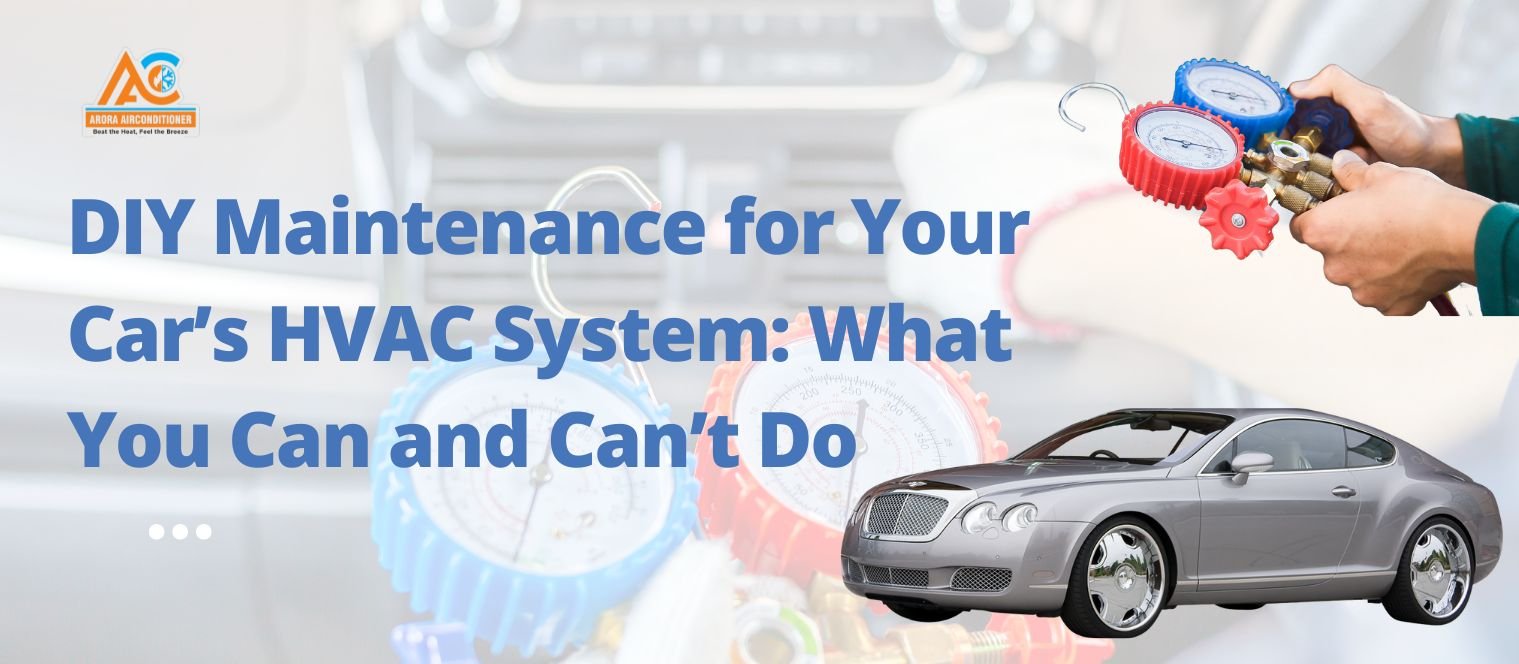Your car’s HVAC (Heating, Ventilation, and Air Conditioning) system works year-round to keep you comfortable in all seasons. However, extreme temperatures in summer and winter can put extra stress on the system, making regular seasonal care essential. Proper maintenance ensures your HVAC system runs efficiently, avoids breakdowns, and keeps you comfortable no matter the weather.
In this blog, we’ll cover why seasonal HVAC care is crucial, steps to prepare your car for summer and winter, and when to seek professional help.
Why Seasonal HVAC Care Matters
- Optimized Performance: Guarantees that even in the most adverse circumstances, your HVAC system operates well.
- Cost savings: By taking care of minor problems early on, costly repairs are avoided.
- Safety: Keeps you cool to prevent heat exhaustion in the summer and preserves good vision in the winter with a working defroster.
- Comfort: Guarantees steady cabin temperatures for pleasurable journeys.
Preparing Your Car’s HVAC System for Summer
Your car’s air conditioning system must be in good working order to keep you cool during the intense summer heat. Here is how to get ready:
- Verify the levels of refrigerant
Cooling efficiency is decreased by low refrigerant levels. It may be time for a recharge or leak check if your air conditioner is emitting warm air.
- Check the air filter in the cabin.
Airflow might be restricted by a clogged cabin air filter, which makes it more difficult for your air conditioner to chill the cabin. If it is filthy or hasn’t been changed recently, replace it.
- Examine the blower motor.
Verify that the blower motor is operating at every speed setting. A failed motor or a blockage in the vents could be the cause of weak airflow.
- Do a Condenser Inspection
The cooling performance of the condenser, which is situated close to the front grille, might be decreased by dirt or debris buildup. To guarantee adequate airflow, give it a thorough cleaning.
- Check for Leaks
Look for any obvious refrigerant leaks in the system. A pool of greasy fluid beneath the vehicle can be a sign of an issue that requires expert care.
- Conduct a Test of Performance
To evaluate the AC’s performance, turn it on at full blast before the summer heat peaks. Make sure it cools evenly and rapidly.
Preparing Your Car’s HVAC System for Winter
Winter brings its own challenges, such as frost, fog, and freezing temperatures. Here’s how to prepare for the cold months:
- Check the heater
Make sure the heater is producing warm air by running it. There can be a problem with the thermostat, heater core, or coolant levels if it is blowing cold air.
- Examine the defroster
For visibility in the winter, a working defroster is essential. Make that the defrosters in the front and back efficiently clear the glass.
- Check the Levels of Coolant
Coolant, sometimes known as antifreeze, has two purposes: it keeps the vehicle from freezing in the winter and overheating in the summer. To make sure the coolant is adequate and clean, check its level and condition.
- Examine Belts and Hoses
Belts and hoses may wear out or crack in cold conditions. Look for indications of damage to these parts and repair them as necessary.
- The cabin air filter should be cleaned or replaced.
A clean cabin air filter guarantees adequate airflow and effective heating, just like in the summer.
- Maintain a Regular HVAC System
Running the system occasionally helps maintain its parts and keeps seals from drying out, even if you don’t need the heater or air conditioner every day.
Seasonal HVAC Care Tips
- Plan Biennial Inspections: To identify any problems before the high temps arrive, get your HVAC system evaluated in the spring and fall.
- Pay Attention to Warning Signs: Minor problems should be fixed right away to prevent future costly repairs.
- Maintain System Cleanliness: To keep the condenser operating efficiently, clean it frequently and change the air filters.
- Use the Correct Coolant: To find out what kind of coolant or antifreeze is best for your car, consult your owner’s handbook.
Why Regular HVAC Care is Worth It
Proactively performing regular HVAC maintenance prolongs the life of your system, saves you money, and guarantees a safe and comfortable driving experience all year round. Conversely, neglecting HVAC maintenance can result in expensive repairs, decreased efficiency, and even safety hazards during severe weather.
Get Professional Help Today
Your car’s HVAC system should be prepared to function in every weather, from the scorching summer to the bitterly frigid winter. To keep your system operating at its best, Arora Air Conditioner provides professional seasonal HVAC maintenance and repair services.
Conclusion
No matter the season, the HVAC system in your car is crucial for both comfort and security. Maintaining it proactively before the summer heat or the winter cold guarantees peak performance, prevents expensive repairs, and keeps you and your passengers comfortable while driving.
FAQ
- Why is seasonal HVAC maintenance important for my car?
Your HVAC system will be prepared to withstand intense summer heat or winter cold thanks to seasonal maintenance. It keeps expensive repairs at bay, maximizes performance, and guarantees year-round comfort and safety. - How often should I inspect my car’s HVAC system?
The HVAC system in your automobile should be inspected at least twice a year, in the spring before summer and again in the fall before winter. Detecting minor concerns early is aided by routine checkups. - What are the most common HVAC issues during summer?
Common summer problems include:
- low levels of refrigerant.
- The vents’ airflow is weak.
- cabin air filters that are clogged or dirty.
- A compressor that isn’t working properly.
- How do I prepare my car’s HVAC system for winter?
To prepare for winter:
- Check the defroster and heater.
- Verify the hoses and coolant levels.
- The cabin air filter should be cleaned or replaced.
- Check belts for deterioration.
- Can I perform HVAC maintenance myself?
Yes, you can handle simple tasks like:
- Changing the air filter in the cabin.
- Checking the amount of coolant.
- Clearing the condenser of debris.
- However, a professional should handle complicated problems like heater breakdowns or refrigerant leakage.




